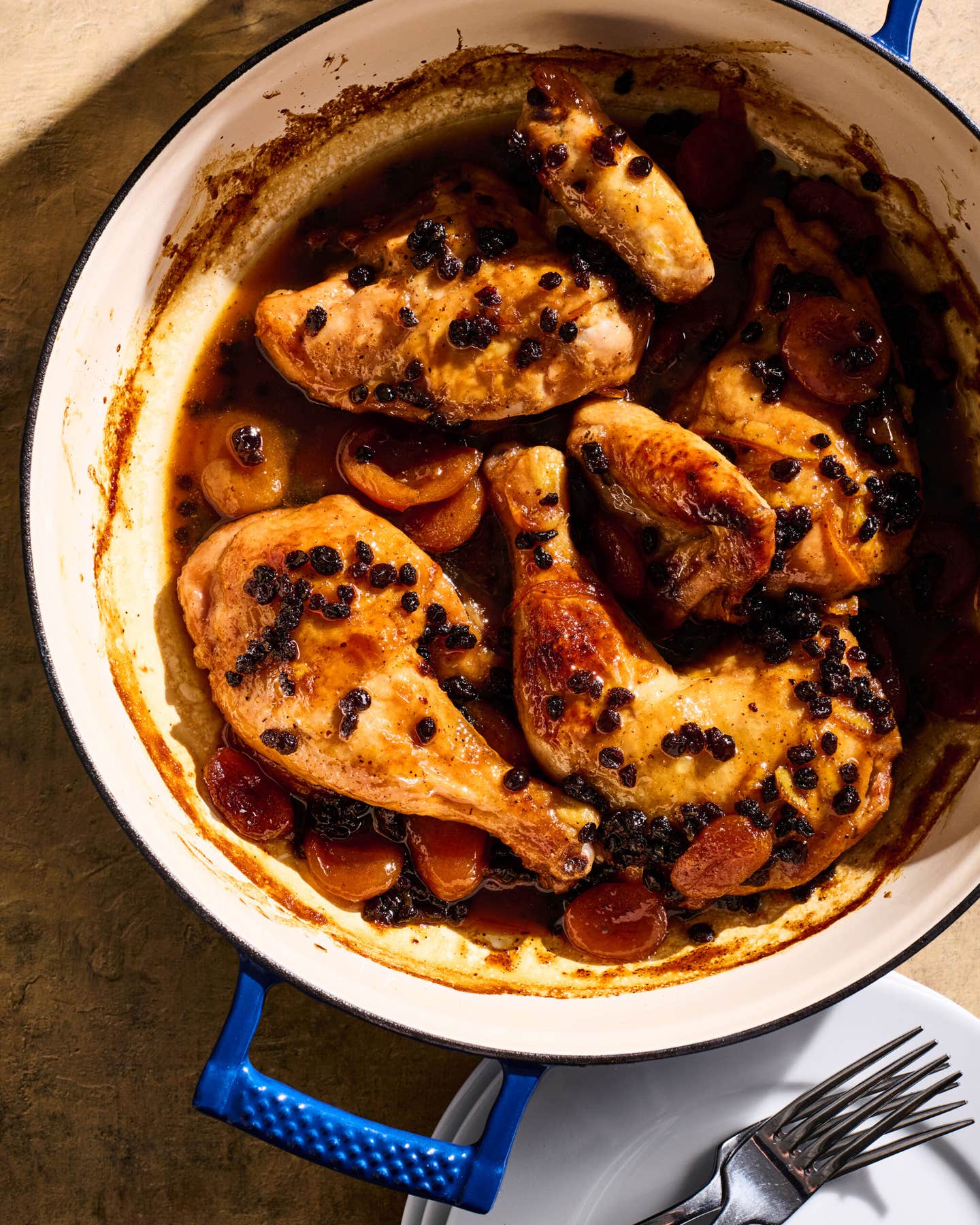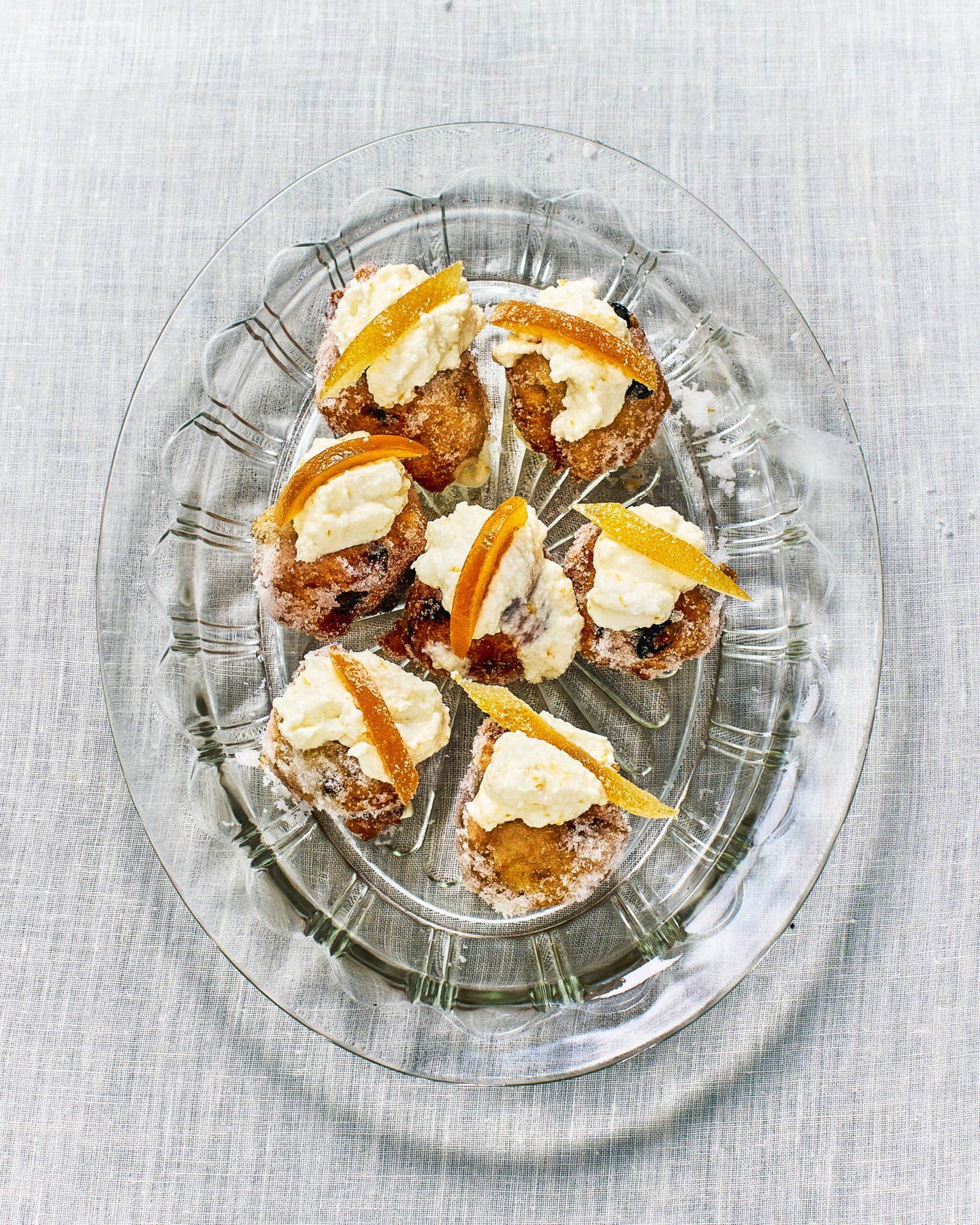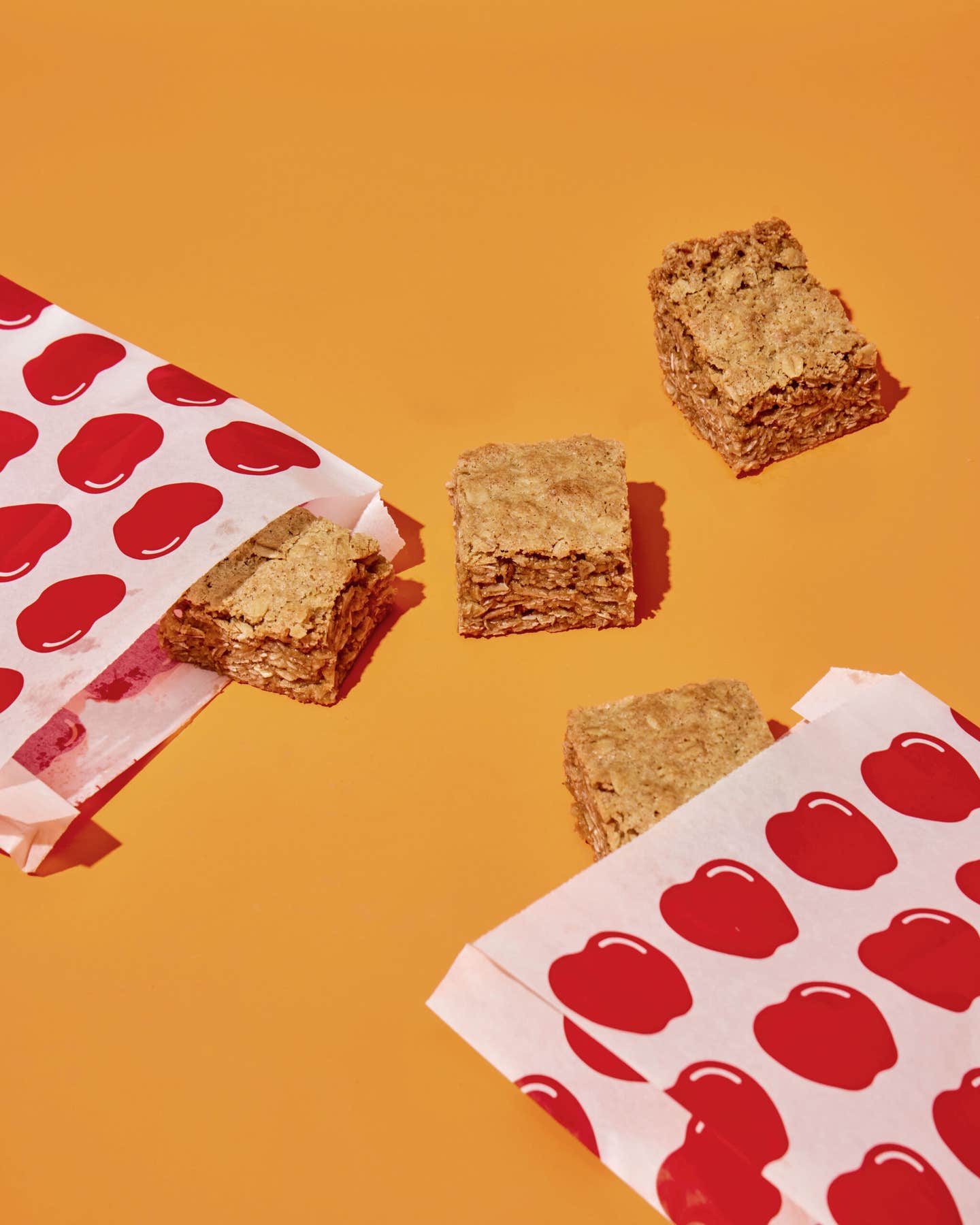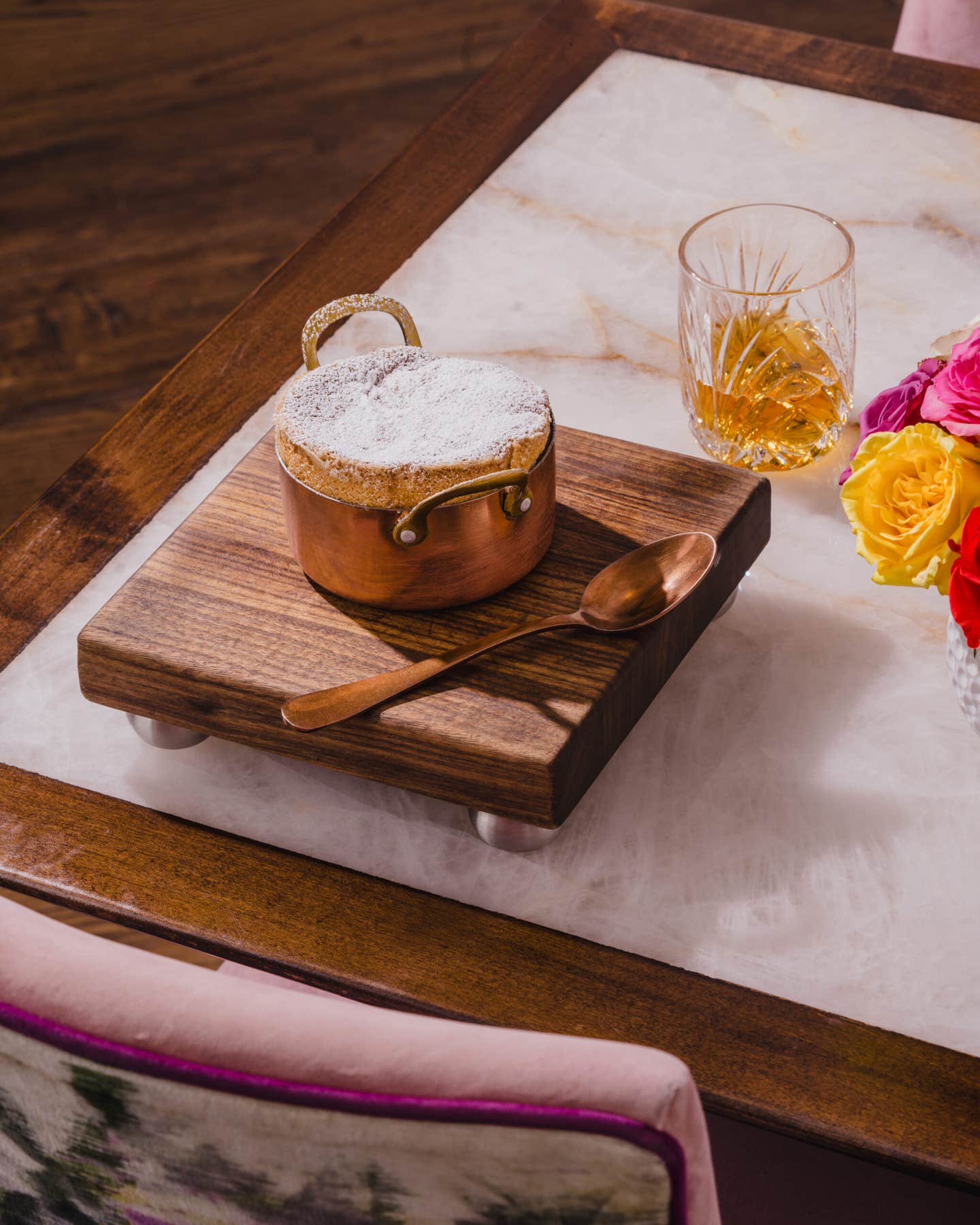
Chicken Paprikash
In the minds of some of their Eastern European immigrant neighbors, my parents, Lester and Olga Kolozy, had a mixed marriage: he was Hungarian and she was Slovenian. It didn't get in the way too much, though; they were married for 60 years. They fell in love after my father spotted my mother at a Valentine's Day dance in Cleveland, Ohio; her parents told her not to marry a Hungarian, because all they think about is their next meal. My father did have a voracious appetite, and we generally ate Hungarian food. One meal we all loved was my mother's ** chicken paprikash** (paprikas csirke in Hungarian), Hungary's famous dish of braised chicken and dumplings. Since we lived on a farm, she got most of the ingredients right outside our back door. The chickens were free range (not a term we even knew about in the 1950s), the water was from our well, the onions were from the garden, and the sour cream was from our Jersey cow, Molly. Once in a while, one of my father's Hungarian friends, just returned from visiting the old country, would bring us some wonderful paprika, rich and red. My mother browned the onions and added the chicken, the paprika, and the other seasonings, and the delectable smells of the simmering food wafted through the kitchen and mingled with the fresh breezes that swept in through our open windows. Meanwhile, my mother would put on a big pan of water to cook the flour dumplings. The dough was a rich yellow because our chicken eggs had such deep orange yolks. Mother dropped spoonfuls of it into the boiling salted water, and in no time the fluffy dumplings bobbed to the top. When she slipped them into the pan with the savory drippings from the simmered chicken, the dumplings took on a beautiful red-gold color; the sight of them set our mouths watering. My father was called to the table, and we sat down and got started with no fanfare. It was good, hearty food that pleased all our senses. With cooking like this, how could you help looking forward to the next meal? —_Isabelle Zgonc, Slippery Rock, Pennsylvania _
Keep Reading
Continue to Next Story










